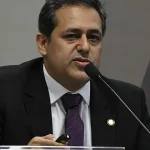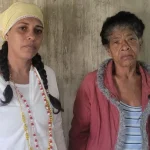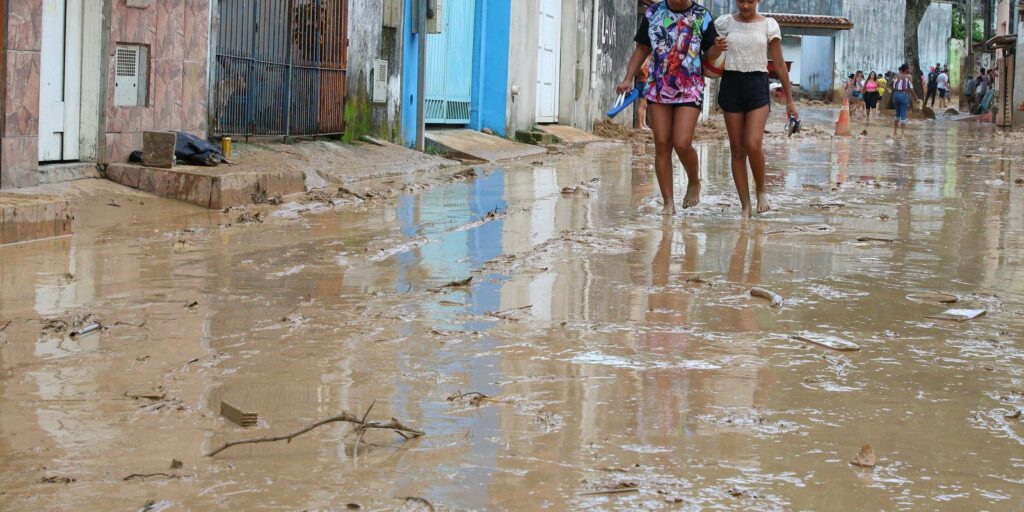The head of the Buenos Aires Cultural Institute, Florencia Saintout, affirmed this Tuesday that Peronism must “build the conditions to reverse the situation of proscription” of Cristina Kirchner and asked “military” so that, if she wishes, the Vice President can run in the next general election.
“Cristina’s is not a resignation, nor a self-exclusion: she is banned”warned the official in statements made to Télam in which she referred to the current situation of the ruling party.
He maintained that “beyond the technicality that has been discussed lately, whether or not it is true that it is outlawed, the truth is that The conditions were generated from the right so that Cristina cannot be the candidate that the people want to vote for to govern and we have to turn that situation around”.
For the former deputy from Buenos Aires, “the political discussion has to do with that, both for the political opposition and for the real power – the judicial party, the concentrated media and the economic power – who do not want her to be a candidate; but also for us, Peronism, that we must create the conditions so that it can be, because it is the only one that can get us out of this very difficult situation”.
In this regard, she said she was sure “that Justice is putting democracy at risk” and stated: “This year marks 40 years of democracy, throughout which there were moments where it was considered a utopian horizon, to be created; others, in the 90s, where it was something routine because rights were reduced; and moments, as in the Kirchner governments, in which the heart of democracy was expanded, conquering rights for the majorities”.

“The present is a moment where democracy is harassed by a mafia power, which tries to block it by other means, from the Judiciary. The great dilemma is: Are we governed by democracy or by the mafia? Who sets the rules of the game, the concentrated capital, Héctor Magnetto, the Judiciary – four privileged elected through undemocratic methods – or the people, society, the people?” He indicated.
Then, Saintout pointed out that “a society where very few decide in favor of the privileges of a few others is not possible” and evaluated that “as a society we have to decide because it is not a problem of Kirchnerism, but rather Mafia power threatens Kirchnerism, Peronism and all of society”.
In this context, he wondered: “What are we going to vote for: what we want or what they want? Perhaps one does not want to vote for it, but they have to have the option of being able to vote for it.”
Asked about the campaign called by Kirchnerism to call to “break the proscription”, the official analyzed that “it has to be with the marshal’s baton, in which we can say that it is not natural, or because Cristina can not run for election.”
In this sense, he asked “denature the idea that Cristina will not be a candidate”as well as “putting it up for discussion,” and noted that “now a document signed by all the sectors that make up the Frente de Todos has been drafted, so there should be no discussion about whether or not it is banned.”
“How is this achieved? Militating for the possibility that Cristina can once again be president of the Argentines,” he continued, stressing that it is imperative to “disnaturalize and question the idea that Cristina cannot be a candidate.”

Saintout highlighted the formation of the FdT political table, which was held last week at the national headquarters of the Justicialista Party, in the Balvanera neighborhood of Buenos Aires, but considered that this “does not solve the problems we have.”
“This is resolved governed”Saintout said, lamenting that “people can’t make ends meet.”
In this context, he assessed that it should be “govern to expand rights, guarantee certainty and stability for the people, with a dignified life” and pointed out that “Cristina has popular power because she governed thinking of the people.”
Subsequently, the former dean of the Faculty of Journalism stated that “it is not incorrect” that a commission has been formed to ask the head of the Senate to reassess the idea of not appearing, but he opined that this “is not enough”.
“It is not that you have to convince her, but that you have to change the conditions of possibility. What politics does is transform the conditions of the possible. What is not correct is to think that this is about Cristina’s will. He expressly said in the act of Avellaneda. These are the historical conditions,” he continued.


















